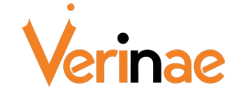In the ever-evolving landscape of digital marketing, mastering the art of online advertising is crucial for business success. As we approach 2025, two platforms dominate the digital advertising arena: Meta Ads and Google Ads. These platforms offer unparalleled reach and targeting capabilities, making them essential tools for businesses of all sizes. However, navigating their complexities and staying ahead of the curve requires a deep understanding of current trends and best practices. This article will delve into the intricacies of Meta Ads and Google Ads, providing practical tips and actionable advice to help you maximize your advertising ROI in 2025.
Understanding the Evolving Digital Advertising Landscape
The digital advertising landscape is constantly shifting, driven by technological advancements, changing consumer behaviors, and evolving platform algorithms. Staying informed about these changes is paramount for creating effective advertising campaigns.
One significant trend is the increasing importance of personalized advertising. Consumers are bombarded with ads daily, so campaigns that resonate with their individual needs and preferences are more likely to succeed. Additionally, privacy regulations are becoming stricter, requiring advertisers to adopt more transparent and ethical data collection and usage practices.
Key Trends Shaping Meta Ads & Google Ads in 2025
- AI-Powered Automation: Both platforms are leveraging artificial intelligence to automate various aspects of campaign management, from ad creation to bidding optimization.
- Video Advertising Dominance: Video continues to be the most engaging ad format, and both Meta and Google are prioritizing video ad placements.
- Enhanced Audience Targeting: Advancements in data analytics allow for more precise audience targeting based on demographics, interests, behaviors, and purchase intent.
- The Rise of Short-Form Video: Platforms like TikTok have popularized short-form video, influencing ad formats and strategies on Meta and Google.
- Privacy-Focused Advertising: The industry is shifting towards privacy-centric solutions, requiring advertisers to adapt their data collection and targeting methods.
Mastering Meta Ads for 2025
Meta Ads, formerly Facebook Ads, provides access to a massive user base across Facebook, Instagram, WhatsApp, and Messenger. Its robust targeting options and diverse ad formats make it a powerful tool for reaching specific audiences and driving conversions.
Success with Meta Ads hinges on crafting compelling ad creatives, targeting the right audience, and optimizing campaigns for performance. Furthermore, understanding how to leverage the various ad formats and targeting options is essential.
Effective Meta Ads Strategies for 2025
- Leverage AI-Powered Ad Creation: Use Meta’s automated ad creation tools to generate variations of your ads and test different headlines, images, and calls to action.
- Prioritize Video Ads: Create engaging video ads that capture attention and communicate your message effectively. Consider using short-form video for platforms like Instagram Reels.
- Utilize Lookalike Audiences: Expand your reach by targeting users who share similar characteristics with your existing customers.
- Implement Conversion Tracking: Track conversions accurately to measure the effectiveness of your campaigns and optimize for desired outcomes.
- A/B Test Your Ads: Continuously test different ad variations to identify what resonates best with your target audience.
Consider exploring resources about the platform. You might find information on wikipedia:Facebook advertising
Real-World Example: Meta Ads Success
A local clothing boutique used Meta Ads to target women aged 25-45 within a 10-mile radius of their store. They created a series of video ads showcasing their new arrivals and offering exclusive discounts. By using precise targeting and compelling visuals, they significantly increased foot traffic and online sales.
Conquering Google Ads in 2025
Google Ads, formerly Google AdWords, allows you to reach potential customers when they are actively searching for products or services. Its search and display networks offer diverse opportunities for advertising, from text ads to image ads to video ads.
Success with Google Ads depends on choosing the right keywords, crafting compelling ad copy, and optimizing your landing pages for conversions. Furthermore, understanding the intricacies of bidding strategies and ad extensions is crucial.
Winning Google Ads Tactics for 2025
- Conduct Thorough Keyword Research: Identify the keywords that your target audience is using to search for products or services like yours.
- Write Compelling Ad Copy: Craft ad copy that is relevant, engaging, and includes a clear call to action.
- Optimize Your Landing Pages: Ensure that your landing pages are relevant to your ads, user-friendly, and optimized for conversions.
- Utilize Ad Extensions: Use ad extensions to provide additional information about your business, such as your phone number, location, and website links.
- Implement Smart Bidding: Leverage Google’s automated bidding strategies to optimize your bids for maximum performance.
Many experts suggest looking at Google’s public statements to stay up-to-date. You may be able to find something on Google News:Google News
Real-World Example: Google Ads Achievement
A plumbing company used Google Ads to target users searching for “emergency plumbing services” in their local area. They created a series of text ads that highlighted their 24/7 availability and quick response times. By using precise targeting and compelling ad copy, they significantly increased their lead generation and customer acquisition.
Synergizing Meta Ads & Google Ads: A Unified Approach
While Meta Ads and Google Ads are powerful platforms on their own, combining them into a unified strategy can amplify your results. By integrating your campaigns across both platforms, you can reach a wider audience, reinforce your message, and drive conversions more effectively.
A unified approach requires a clear understanding of each platform’s strengths and weaknesses, as well as a well-defined strategy for integrating your campaigns. This includes aligning your messaging, targeting, and bidding strategies across both platforms.
Strategies for Integrating Meta Ads & Google Ads
- Use Meta Ads for Brand Awareness: Utilize Meta Ads to build brand awareness and reach a broad audience.
- Use Google Ads for Lead Generation: Utilize Google Ads to capture leads from users who are actively searching for your products or services.
- Retarget Users Across Platforms: Retarget users who have interacted with your ads on one platform with ads on the other platform.
- Align Your Messaging and Targeting: Ensure that your messaging and targeting are consistent across both platforms.
- Track Your Results and Optimize: Track your results across both platforms and optimize your campaigns for maximum performance.
If you are looking for expert assistance in optimizing your online presence, consider engaging a Miami SEO Agency to enhance your search engine rankings and drive targeted traffic to your website.
Navigating the Challenges and Preparing for the Future
The digital advertising landscape is not without its challenges. Increased competition, rising ad costs, and evolving privacy regulations can make it difficult to achieve success. However, by staying informed, adapting your strategies, and leveraging the latest technologies, you can overcome these challenges and thrive in the long run.
Preparing for the future requires a proactive approach. This includes staying abreast of industry trends, experimenting with new ad formats and targeting options, and continuously optimizing your campaigns for performance.
Tips for Overcoming Challenges and Preparing for the Future
- Stay Informed: Stay up-to-date on the latest trends and best practices in digital advertising.
- Adapt Your Strategies: Be prepared to adapt your strategies as the digital advertising landscape evolves.
- Experiment with New Ad Formats: Experiment with new ad formats and targeting options to find what works best for your business.
- Continuously Optimize Your Campaigns: Continuously optimize your campaigns for performance based on data and insights.
- Embrace Automation: Leverage AI-powered automation tools to streamline your campaign management and optimize your results.
FAQ: Mastering Meta Ads & Google Ads
Here are some frequently asked questions about Meta Ads and Google Ads:
- What is the difference between Meta Ads and Google Ads?
- Meta Ads allows you to target users based on their demographics, interests, and behaviors across Facebook, Instagram, WhatsApp, and Messenger, while Google Ads allows you to reach potential customers when they are actively searching for products or services on Google.
- Which platform is better for brand awareness, Meta Ads or Google Ads?
- Meta Ads is generally better for brand awareness due to its broad reach and diverse ad formats. However, Google Ads can also be used for brand awareness through display ads.
- Which platform is better for lead generation, Meta Ads or Google Ads?
- Google Ads is often more effective for lead generation, as it allows you to target users who are actively searching for your products or services. However, Meta Ads can also be used for lead generation through lead generation ads.
- How much does it cost to advertise on Meta Ads and Google Ads?
- The cost of advertising on Meta Ads and Google Ads varies depending on factors such as your target audience, your industry, and your bidding strategy. Both platforms use an auction-based system, so you’ll need to bid competitively to reach your desired audience.
- How can I track the performance of my Meta Ads and Google Ads campaigns?
- Both platforms provide robust tracking and reporting tools that allow you to measure the performance of your campaigns. You can track metrics such as impressions, clicks, conversions, and return on ad spend (ROAS).
In conclusion, mastering Meta Ads & Google Ads is essential for achieving digital marketing success in 2025. By understanding the evolving landscape, adopting effective strategies, and continuously optimizing your campaigns, you can unlock the full potential of these powerful advertising platforms and drive significant growth for your business. As you navigate the exciting yet complex world of digital advertising, remember to prioritize data-driven decision-making, embrace innovation, and always keep the needs of your target audience at the forefront of your efforts. By doing so, you will be well-positioned to achieve your advertising goals and thrive in the competitive digital marketplace.






